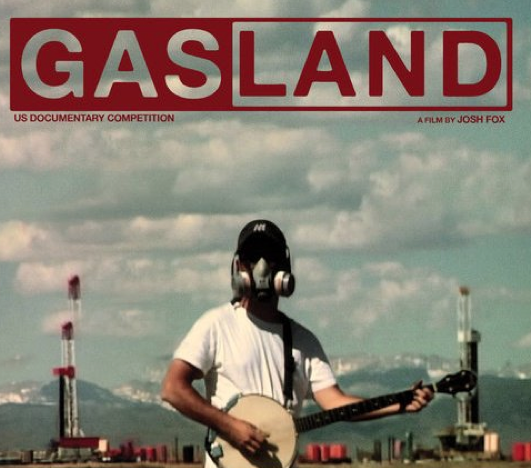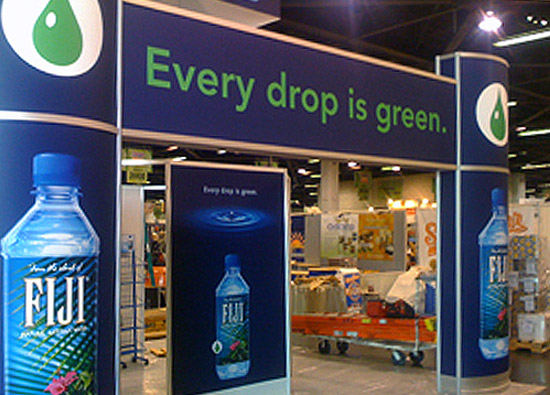Who is Caving to Pressure Against Josh Fox's Oscar-Nominated Documentary, Gasland?
(Editor's note: As we've noted, Josh Fox's documentary, GASLAND, is an Oscar contender this weekend, and the Big Gas industry has been doing everything it can to block this powerful film from winning. Below is the latest in this saga against a film which will open your eyes to the expanded drilling operations and the devastating consequences so far. Josh's film is just a day away from the Oscar ceremony. Visit our water portal page on SourceWatch to find out more about the dangerous practice of horizontal fracturing, "fracking," of the earth with a cocktail of chemicals. Here is a note from Josh on the latest news in the corporate PR spin campaign.)
From Documentary Filmmaker Josh Fox--
 Something bizarre just happened at the Wall Street Journal. At 6 p.m. I was reading a home page story on WSJ.com called "Oscar's Attention Irks Gas Industry" by Ben Casselman which contained perhaps the most honest and revealing quote from the gas industry that I have read to date about their obsession with attacking my film GASLAND. The quote reads "We have to stop blaming documentaries and take a look in the mirror," said Matt Pitzarella, a spokesman for gas producer Range Resources Corp. Just thirty minutes later the quote mysteriously disappears, edited out and in its place is a far more typical spin controlled statement from Tom Price of Chesapeake energy saying, "We need to be able to respond objectively and accurately." Sounds like a robot at a PR agency, more than a person.
Something bizarre just happened at the Wall Street Journal. At 6 p.m. I was reading a home page story on WSJ.com called "Oscar's Attention Irks Gas Industry" by Ben Casselman which contained perhaps the most honest and revealing quote from the gas industry that I have read to date about their obsession with attacking my film GASLAND. The quote reads "We have to stop blaming documentaries and take a look in the mirror," said Matt Pitzarella, a spokesman for gas producer Range Resources Corp. Just thirty minutes later the quote mysteriously disappears, edited out and in its place is a far more typical spin controlled statement from Tom Price of Chesapeake energy saying, "We need to be able to respond objectively and accurately." Sounds like a robot at a PR agency, more than a person.

 The
The  After 12 years of battling to stop
After 12 years of battling to stop 
 The Fiji bottled water company is stomping out of Fiji in protest after the country's government increased a tax it charges on the water from one-third of a Fiji cent to 15 cents per liter. Half of Fijians lack access to safe water while the Fiji Water company exports clean bottled water to the U.S., where Americans shell out 3,300 times what tap water costs to buy it. According to the
The Fiji bottled water company is stomping out of Fiji in protest after the country's government increased a tax it charges on the water from one-third of a Fiji cent to 15 cents per liter. Half of Fijians lack access to safe water while the Fiji Water company exports clean bottled water to the U.S., where Americans shell out 3,300 times what tap water costs to buy it. According to the  CMD's guest blogger, Jill Richardson, has done some ground-breaking reporting on the potential cause of the massive bee die-off.
CMD's guest blogger, Jill Richardson, has done some ground-breaking reporting on the potential cause of the massive bee die-off.